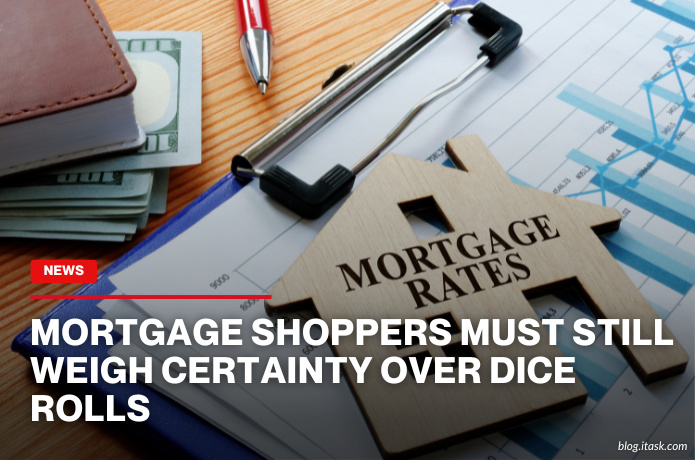Mortgage shoppers must still weigh certainty over dice rolls
Mortgage shoppers must still weigh certainty over dice rolls

In today's uncertain economy, Canadian homebuyers face a tough choice when selecting a mortgage: opt for the stability of fixed rates or gamble on the potential savings of variable rates. While variable rates have historically offered lower costs, recent market volatility has made them riskier. Fixed rates, though higher, provide predictable payments, which can be reassuring in fluctuating financial times.
Financial experts advise that the decision should align with individual risk tolerance and financial stability. For those with tight budgets or a preference for consistent payments, fixed rates may be the safer bet. Conversely, individuals who can accommodate potential rate increases might consider variable rates, hoping for long-term savings.
The Bank of Canada's interest rate policies significantly influence mortgage rates. With potential rate hikes on the horizon, variable-rate mortgages could become more expensive, diminishing their appeal. Homebuyers must stay informed about economic indicators and central bank announcements to make timely decisions.
Additionally, lenders' offerings and terms can vary, making it essential for shoppers to compare options. Some lenders may provide hybrid mortgages, combining fixed and variable elements, offering a middle ground for indecisive borrowers. Consulting with mortgage brokers can also provide personalized insights based on current market conditions.
It's crucial to consider the long-term implications of mortgage choices. While a variable rate might offer initial savings, unexpected economic shifts can lead to higher payments down the line. Fixed rates, though potentially more expensive upfront, can safeguard against such surprises, ensuring financial stability.
Ultimately, mortgage decisions should reflect personal financial situations and comfort with risk. In an unpredictable market, prioritizing certainty over potential savings might be the prudent path for many Canadian homebuyers.
